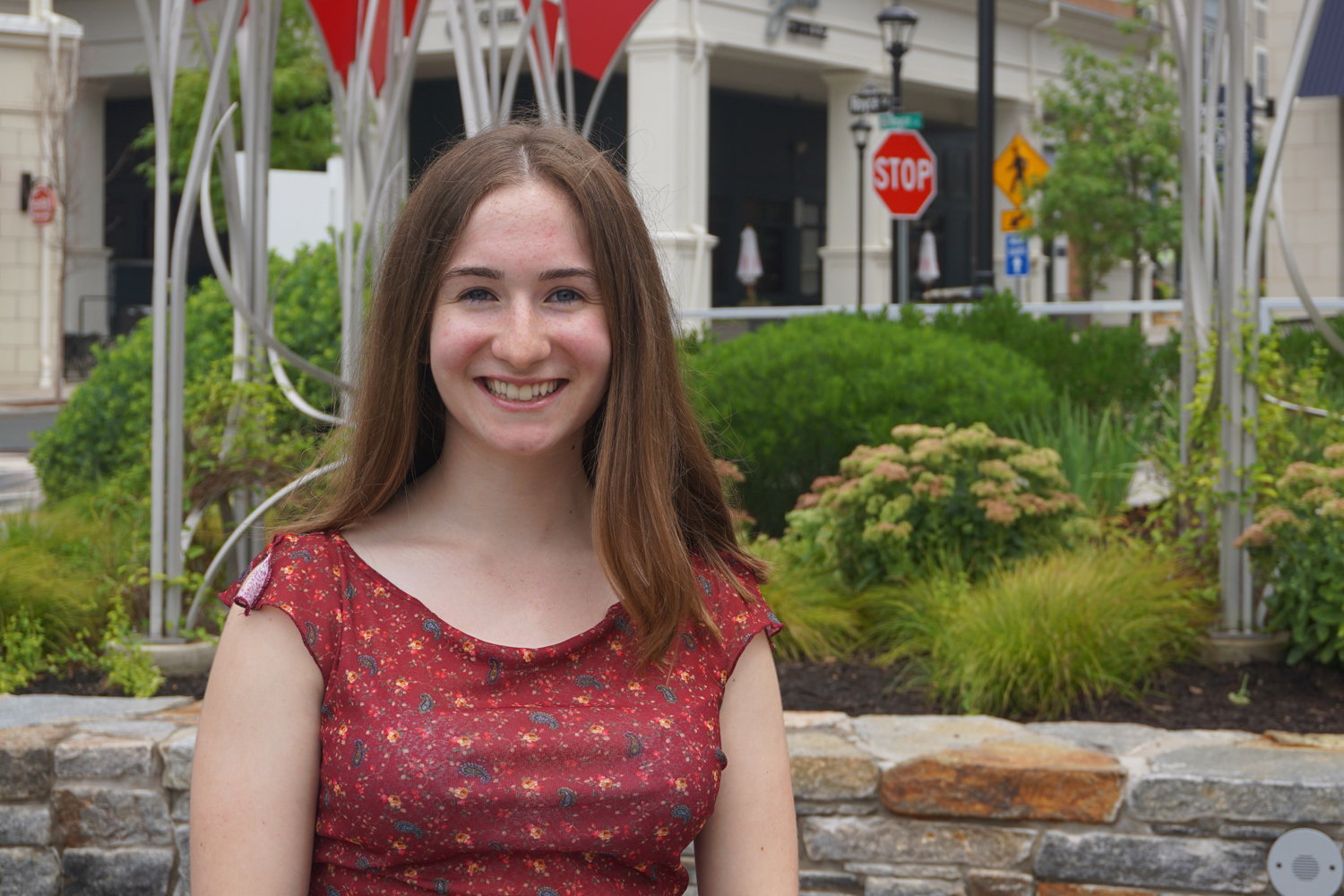Samantha Lawrence remembers in great detail the many times when, as a child and teenager, friends came to her for comfort from distress. Just the sight of someone she cared about being distraught or in tears triggered a deep empathy in Lawrence, and she couldn’t help but drop whatever she was doing, however important, to work to make things right.
She’s still like that today, and this unavoidable urge to help others brought Lawrence to UConn to study psychology. Her goal was to become a clinical psychologist, and when she met Assistant Professor of Human Development and Family Studies Alaina Brenick, she took an interest in the psychology of bullying.
Lawrence’s research with Brenick has shown that race plays a significant role in how youths perceive and respond to bullying scenarios. Understanding different relationships between groups of people has taught her about how people perceive and react to distress.
Lawrence’s sensitivity to the feelings of others, she said, is part of what drives her to study bullying and want to find better ways to help kids in these situations. Participating in research has given her a good outlet for her empathy and a way to balance her desire to help with also taking care of herself.
“It’s like putting on your oxygen mask before your kid’s,” Lawrence said. “You have to learn how to protect yourself a little bit too.”
When she was a sophomore, Lawrence shyly sat in the back of Professor Brenick’s class on Diversity Issues. Awed by Brenick’s passion for her research, Lawrence says she idolized her immediately. Topics regarding intergroup relations that Brenick covered in class overlapped with Lawrence’s interests almost perfectly and helped her excel in the course.
Brenick took notice of Lawrence’s achievement in class, and at the end of the semester, she offered Lawrence an opportunity to conduct research.
“I’ve found my research soul mate!” Lawrence said. “[Professor Brenick’s] just so passionate about her research, and I’ve always been really passionate about this field and about people treating each other with respect. She’s really nourished that in me.”
So far, Lawrence, Brenick, and their collaborators have found that kids with more experience bullying others were less likely to believe that seeking adult assistance was a viable solution and more likely to support aggressive responses to bullying. Those who had bullied others also rated acts of bullying as less wrong than those who had less experience bullying.
The research has also suggested that stereotypical associations between ethnicity and aggression are at play. For instance, victim blaming was more frequent in bullying situations with black youth, suggesting that the stereotypical perception that black individuals are inherently more aggressive negatively impacts how others viewed them in bullying situations. There was more hostility towards a transgressor if they were part of the individual’s out-group (different race) rather than their in-group (same race) in bullying situations.
Lawrence has presented these findings at the Society for Research on Adolescence Conference and the International Society for the Study of Behavioral Development conferences. Attending the ISSBD conference in Lithuania with Brenick was her first time out of the North America.
“It was nice talking about my research to people who actually want to hear it!” Lawrence joked. “I’ll talk to anyone who’ll listen to me, but eventually they’ll just be like ‘stop!’”
Lawrence is currently co-writing two different manuscripts for publication. One focuses on response strategies in bullying situations, and the other looks at moral reasoning, or how people judge and justify bullying situations.
Her research and writing is being funded by the Ocean Rain Family Foundation for Summer Undergraduate Research Award from the UConn Office of Undergraduate Research.
“When I saw that there was an opportunity [to apply] for SURF, I was kind of nervous because you look at the research other people are doing and it’s super intimidating,” Lawrence said.
Lawrence began her college career at Clark University, but returned to UConn when her mother was diagnosed with cancer. Her mother has since recovered, but Lawrence appreciated the opportunity to attend UConn’s West Hartford campus, where she’s been involved in many pro-social activities, such as tutoring and mentoring. She actively refutes what she says is a stigma of attending a regional campus.
“It’s kind of stigmatized to go to a regional campus, which is weird because it’s still UConn,” she said. “But I’ve [still] had an incredible experience there. All my professors have been so incredibly smart and passionate about what they do.”
Though she is unsure if she will pursue professorship, research, or clinical psychology after graduating in May of 2017, Lawrence is certain that she has found her passion and hopes to continue the study of intergroup relations in graduate school. Before leaving Lithuania, she got to go explore the city and its rich history.
“I think one of the most powerful experiences was when we went to Ponary Memorial, which is where 100,000 people were massacred during World War II, 70,000 of whom were Jewish. It’s just devastating to see, and it is a clear reason why we need to keep studying [intergroup relations],” Lawrence said. “I get so frustrated, and that’s how I know I’m in the right field.”



